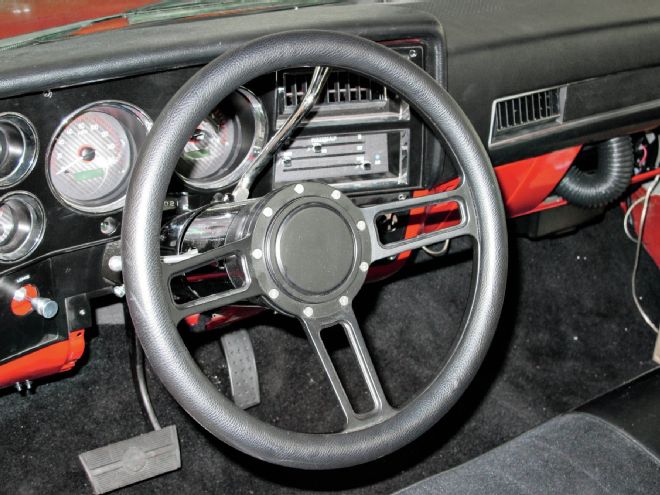
When the trucks we hold so near and dear to our hearts were new, utility was first and foremost, and as a result, hauling was more important than handling. Even when convenience options like power steering, brakes, and automatic transmissions began to become available, drivability was still a long way down the list of important characteristics for a truck as far as most manufacturers were concerned.
Today most of us strive to improve our trucks when it comes to road manners and one area that can often benefit from updating is the steering. Like most trucks, our '85 Chevy had relatively slow power steering. Typically trucks of the era had steering ratios of 16:1 to 24:1 (our original power box was 16:1). That numerical reference used to describe a steering gear refers to the relationship between the rotation of the steering wheel and the movement of the wheels. If turning the steering wheel 16-degrees makes the wheels turn 1-degree, the ratio is 16:1. A quicker-ratio box makes the wheels turn farther with the same steering wheel movement and the number of turns lock to lock is reduced.
To give our C10 more responsive steering we turned to Classic Performance Products (CPP) for one of their newly developed 500-series steering boxes. Manufactured with a one-piece housing with all new parts, it uses an original Pitman arm, has a 12:4 ratio, and each new box is factory tested to ensure quality. Optional chrome finish and new Pitman arms are also available.
As part of our truck's previous updates a Chevrolet Performance 5.3 LS 3 E-Rod engine had been installed to go along with the power steering pump that was attached so we opted to add a CPP remote aluminum fluid reservoir with braided stainless steel lines.
Since updating the steering was the goal we decided to do the job completely and add a tilt column from Flaming River. Being able to position the steering wheel for driver comfort is certainly a plus, and so is a turn signal switch that cancels in both directions and a shifter that doesn't rattle — conditions that often exist with an original steering column. To top it off we installed a new leather-wrapped steering wheel from Eddie Motorsports.
With the new column in place we needed linkage to hook up the column shifter to the automatic transmission. The necessary parts came from Kugel Komponents. Included is a linkage arm for the transmission that is slotted so the travel of the column shifter lever can be matched to that of the shifting mechanism in the transmission.
The final link in the steering system is the intermediate shaft from CPP that connects the column to the gearbox. Along with hooking components together, the intermediate shaft makes up for angularity differences between the column and the gearbox with a U-joint at each end. In addition there is a slip joint that allows for the movement that occurs between the frame-mounted steering gear and the cab-mounted column.
With all the new steering components in place our C10 was far more responsive to the driver's input, which is another way of saying it's a bunch more fun to drive…and that's what we wanted. Don't you?
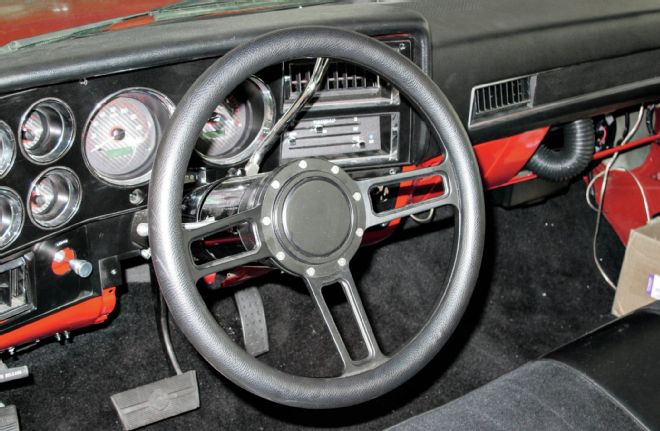
01 A new smaller, sportier leather-wrapped wheel from Eddie Motorsports is more in keeping with the steering improvements than the big plastic stocker.
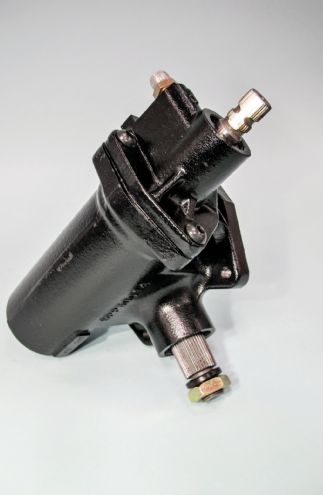
02 To improve steering feel we installed a Classic Performance Products 500-Series steering box with a quicker-than-stock 14:1 power steering gear in our C10 Chevrolet.
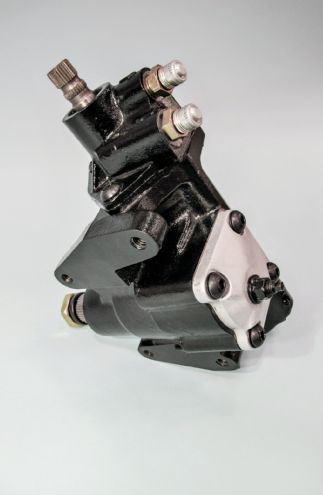
03 CPP's 500 series power steering box has a one-piece housing, all components are new and the original Pitman arm fits.
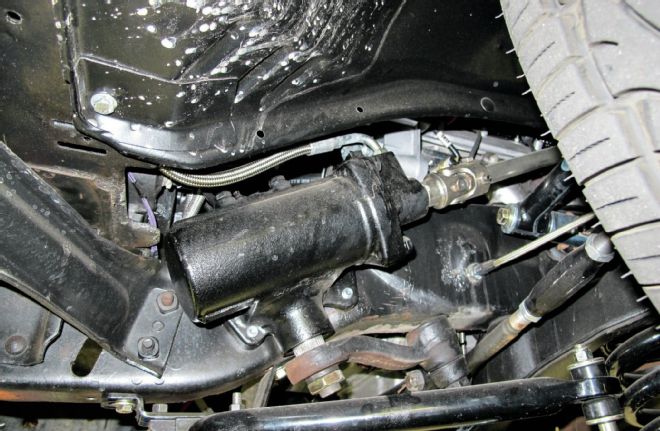
04 Just like the original steering gear the CPP replacement bolts directly to the outside of the left framerail.
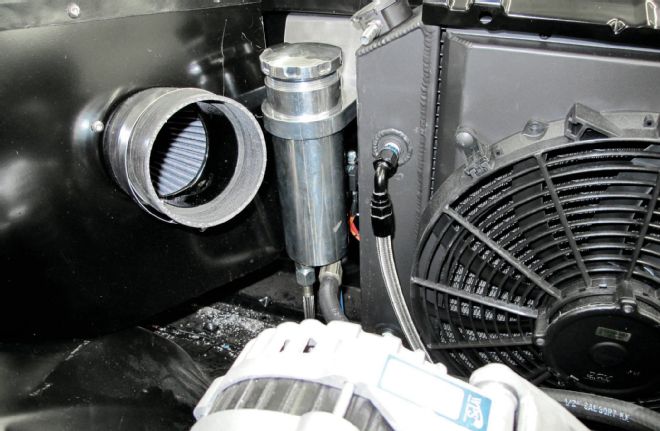
05 To complement the LS-style power steering pump a CPP power steering reservoir with stainless steel lines was added.
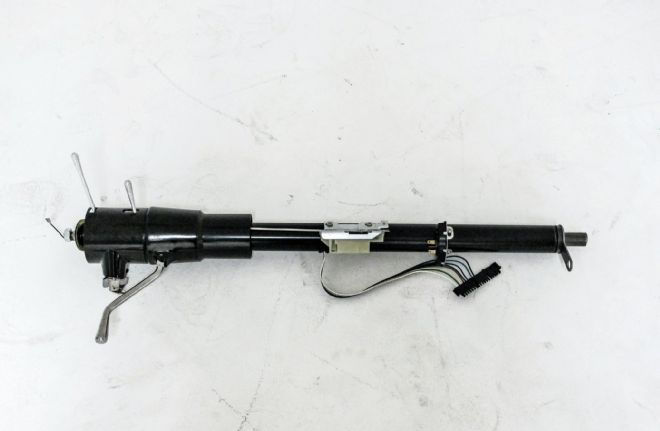
06 As part of the steering upgrade we added a black, powdercoated tilt steering from Flaming River. Ours included a column shifter.
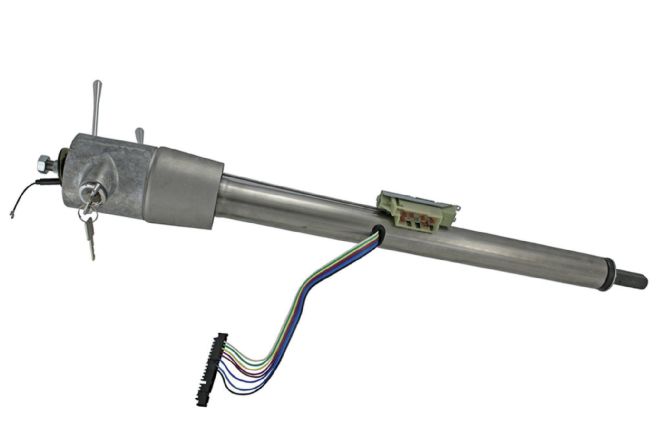
07 An option for those wanting a column with custom paint Flaming River offers this bare steel version; they are available with and without shifters and with or without an ignition switch.
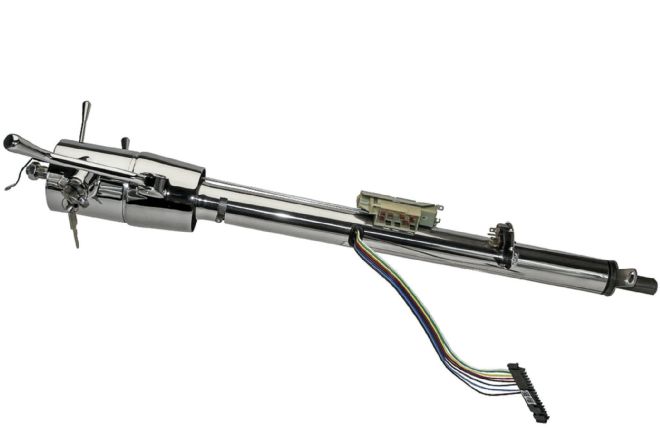
08 For those looking for some extra sparkle Flaming River offers a variety of columns in polished stainless steel.
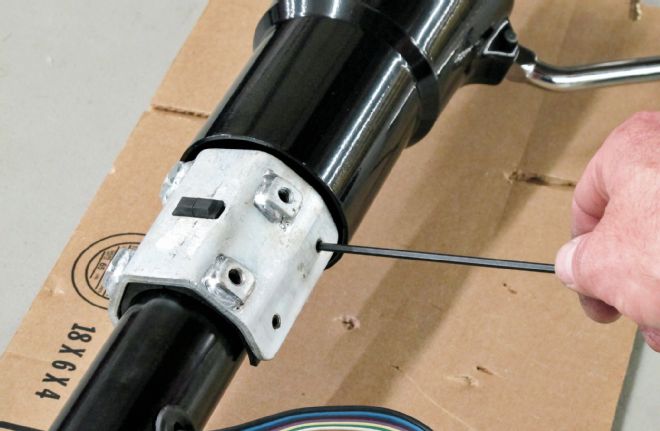
09 The original C10 column-mounting bracket attaches to the Flaming River column.
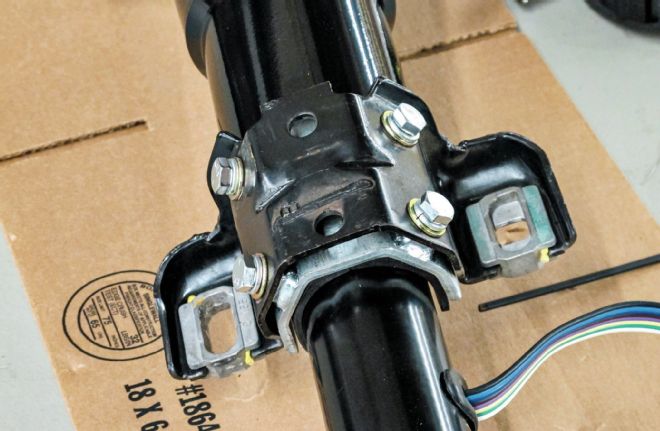
10 A second bracket attaches to the first bracket on the column, it in turn bolts to the lower dash panel.
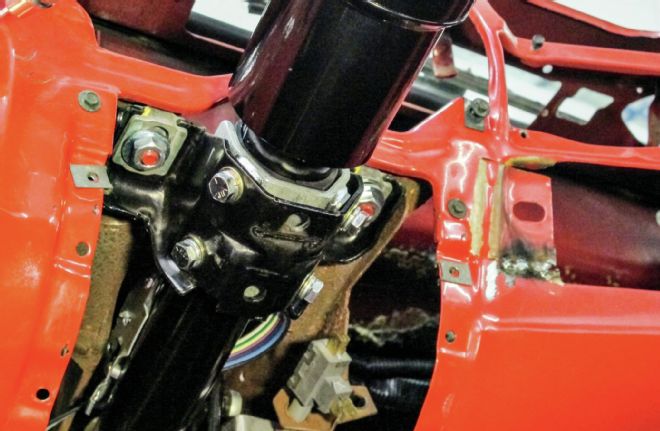
11 The design of the GM column mounting brackets allows them to break away from the dash in the event of a collision. This function is retained with the Flaming River column.
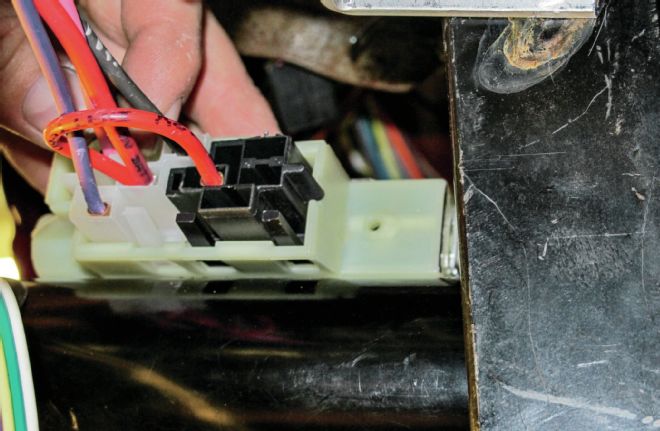
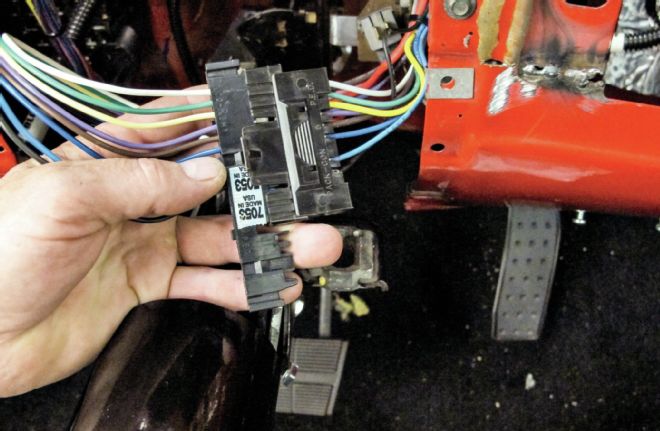
12-13 As we pointed out in the wiring story on the same truck not long ago, the ignition switch (left) and turn signal wiring from the column plug directly into wiring harness.
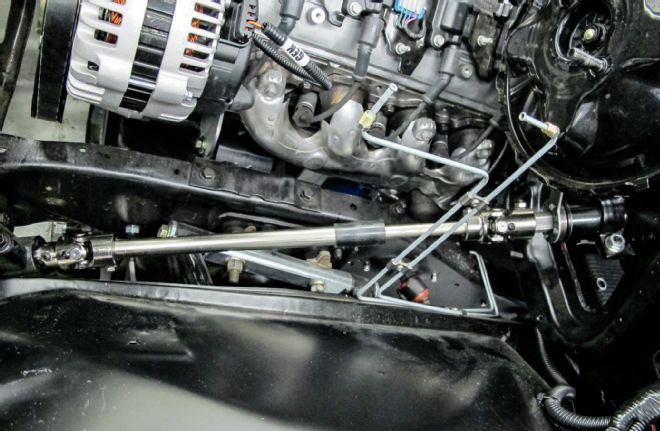
14 Another recommended update is a new intermediate shaft. Ours came from CPP and has a slip joint in the middle where the 3⁄4-inch solid male and 1-inch female Double D shafts join.
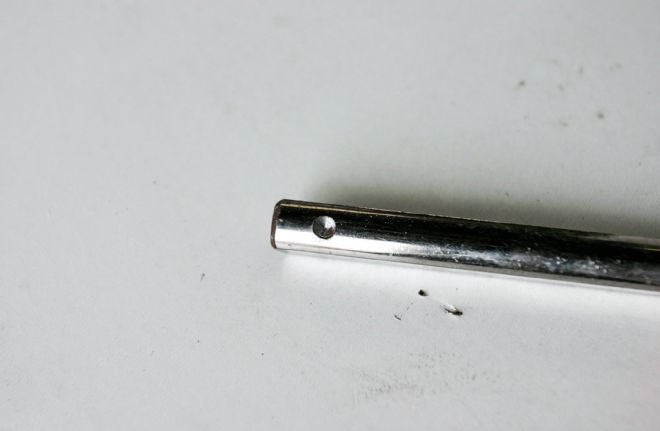
15 Before the U-joints are attached, the ends of the shaft should be dimpled with a drill to provide a seat for the set screws.
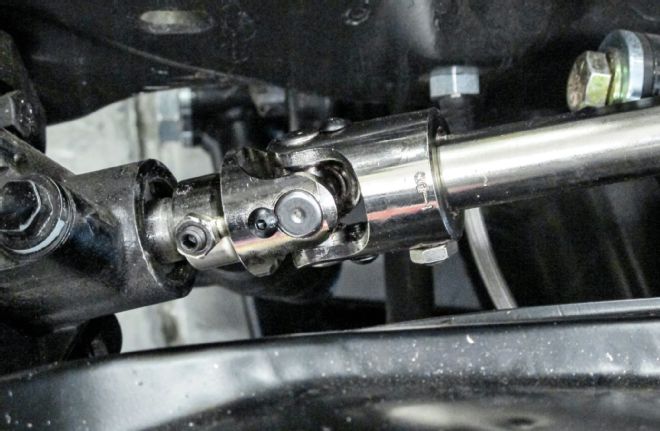
16 The U-joints are secured with set screws with lock nuts. A thread-locking compound should be used on the fasteners and they should be checked after the first few miles.
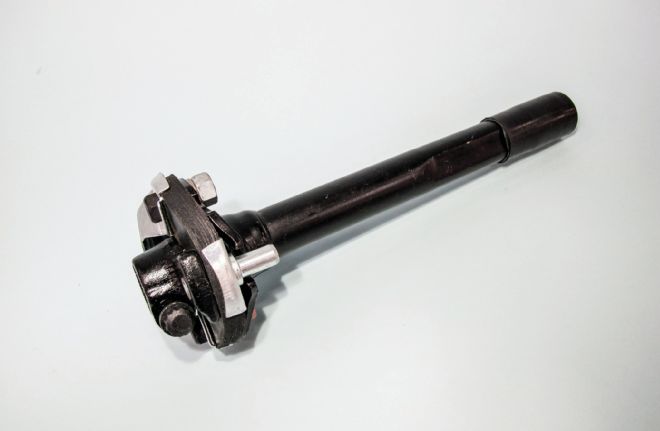
17 For those wanting to retain the original intermediate shaft, or at least most of it, CPP offers this lower portion that allows the use of a 500 Series steering gear.
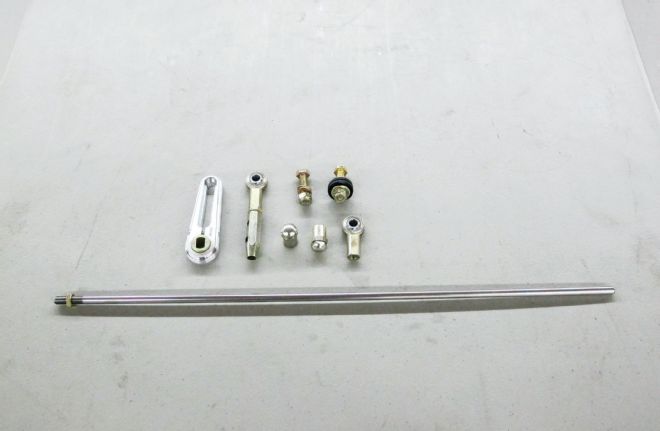
18 One of the additional changes made necessary by the steering column sway is new shift linkage. Ours came from Kugel Komponents.
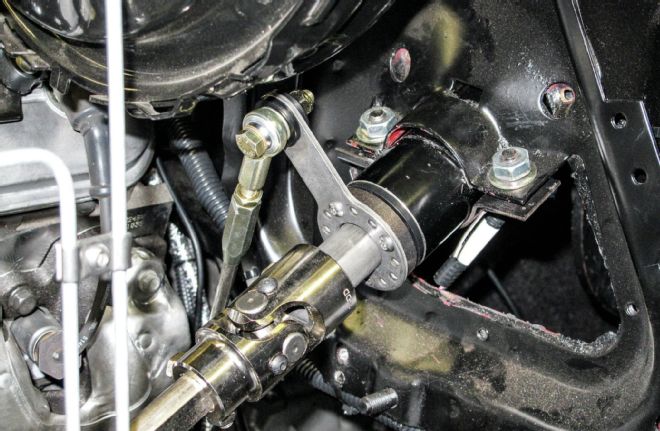
19 To allow the shift arm to be positioned as needed, the lever has multiple attachment holes.
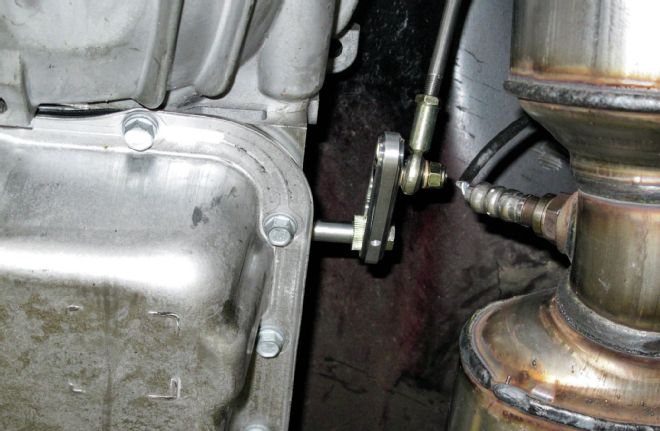
20 Kugel's transmission arm is slotted to allow the travel of the column shifter to be matched to the gear positions in the transmission.